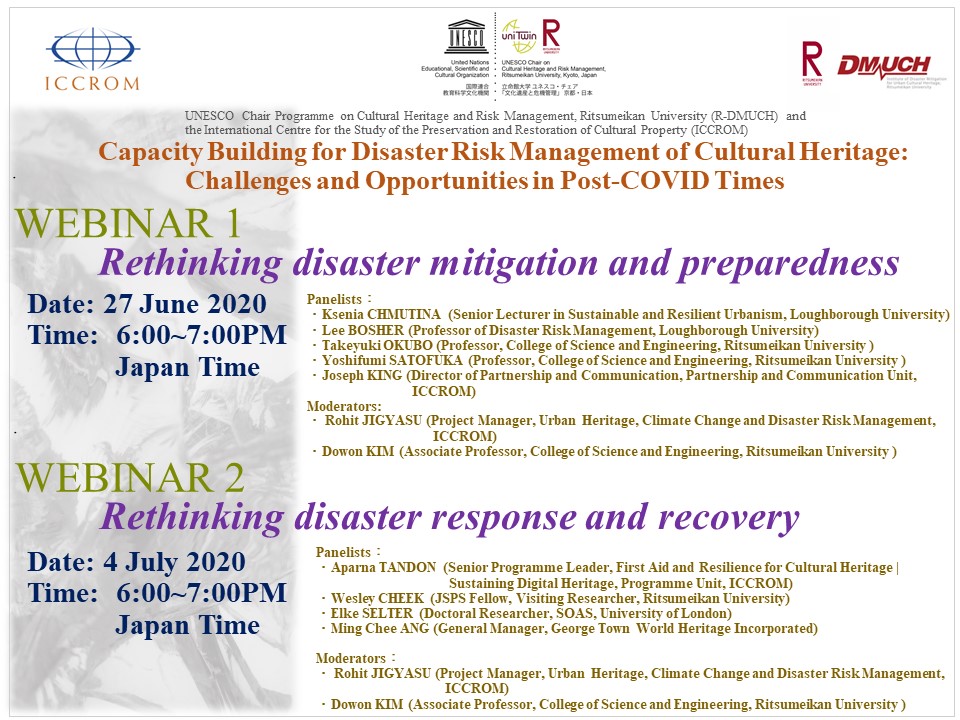Capacity Building for Disaster Risk Management of Cultural Heritage: Challenges and Opportunities in Post-COVID Times
Outline
The COVID-19 pandemic that has caused unprecedented health crisis and global disruption makes us rethink about how to manage disasters caused by biological hazards. Besides huge impacts on peoples’ lives and livelihoods, this pandemic has make influences to the sphere of immovable and movable, or tangible and intangible, cultural heritage. On one hand, we need to think about reducing vulnerability and risks to cultural heritage due to disasters caused by biological hazards and improving local capacities. On the other hand, we also need to reconfigure response and recovery as we pass through this crisis and emerge from it. Clearly there are lessons to be learnt from this pandemic that cuts across all aspects of disaster risk assessment and cultural heritage management. As we move towards post-COVID times, it is time for us to reflect on how we should continue capacity building on the disaster risk management of cultural heritage by tailoring the existing knowledge and skills, identifying and filling gaps in terms of knowledge areas/topics, target audience, and pedagogy based on the lessons learnt from this pandemic. The webinar series of UNESCO Chair Programme on Cultural Heritage and Risk Management by R-DMUCH at Ritsumeikan University and ICCROM aim to discuss the future directions of cultural heritage management through presentations by resource persons of ITC (International Training Course on Disaster Risk Management of Cultural Heritage).
Webinar1: Rethinking Disaster Mitigation and Preparedness, 27 June 2020
Webinar2: Rethinking Disaster Response and Recovery, 4 July 2020
Programme

